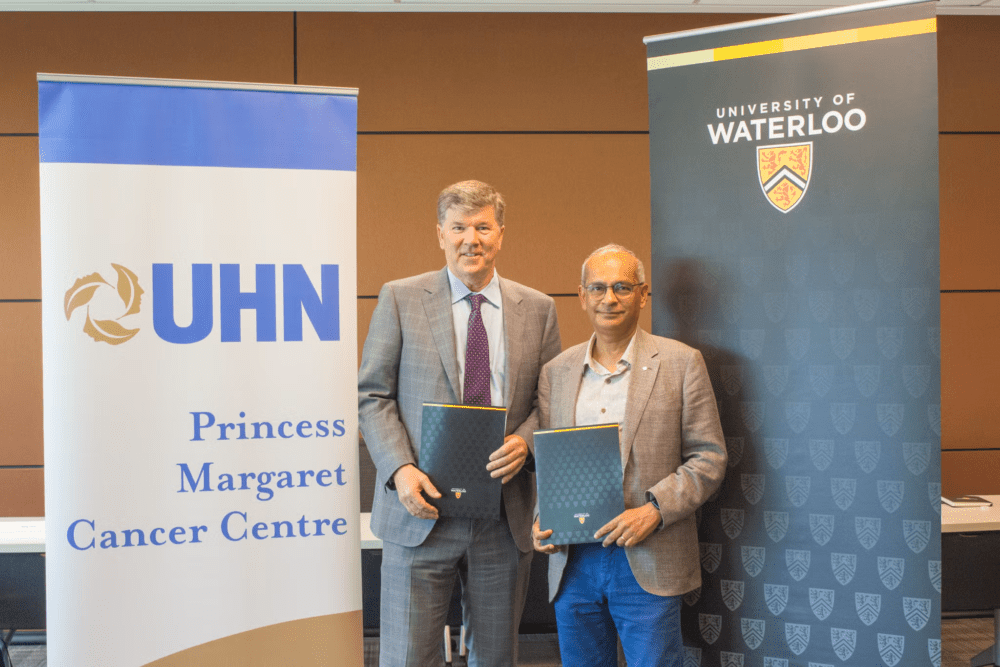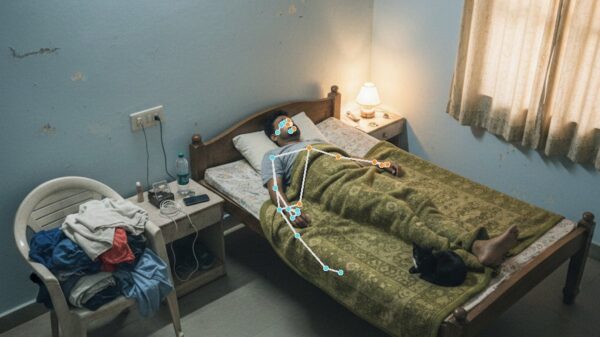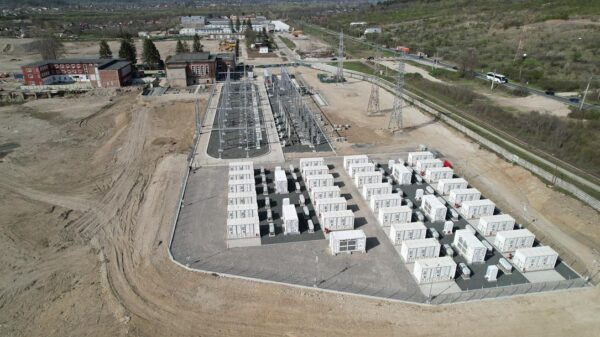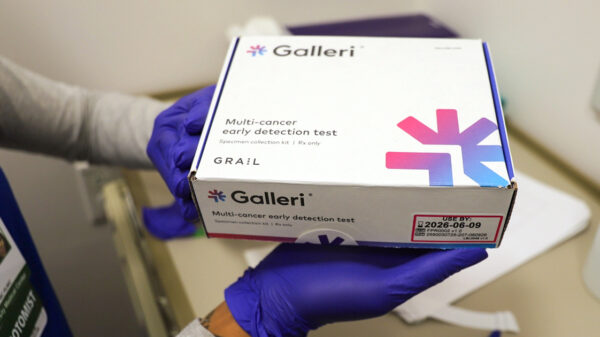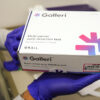The University of Waterloo and Princess Margaret Cancer Centre (PM) have signed a memorandum of understanding (MOU) at University Health Network (UHN) to lay the groundwork for a collaborative effort in pushing cancer research forward.
Leaders and delegations from both institutions met in person and virtually over the past few weeks to formally launch the initiative between Waterloo and PM, as AI transforms cancer care.
The MOU creates an environment where researchers and medical professionals collaborate on AI-driven projects to improve disease detection, treatment, and integration with existing health systems, delivering more precise and personalized patient care.
Cancer leads as the primary cause of death in Canada. The Canadian Cancer Society reports that healthcare professionals diagnose over 100 types of cancer-related diseases each year. The University of Waterloo excels in advancing research and academic expertise in artificial intelligence, quantum computing, and machine learning, while the Princess Margaret Cancer Centre stands out as Canada’s top hospital for cancer treatment.
“This MOU is not just a formal agreement, but a pivotal step towards advancing medical technology and improving health care outcomes through collaboration and innovation,” said Dr. Vivek Goel, president and vice-chancellor of Waterloo.
“At Waterloo, our commitment to health innovation is reflected in our interdisciplinary approach to health technology. We excel at the intersections of health, society, technology and entrepreneurship. By engaging with partners like PM to co-create solutions advancing population health, we offer Canadians a future-facing model for more sustainable community-based health systems.”
Dr. Goel mentioned how Waterloo had been selected as the site for the new regional hospital earlier this year. Developing a new hospital also signifies the deepening of Waterloo’s collaboration with local health-care institutions.
Read more: Breath Diagnostics onboards new president and closes critical financing
Read more: Breath Diagnostics pioneers novel lung cancer breath test
Both institutions are committed to developing innovative treatments
Princess Margaret is Canada’s largest comprehensive cancer centre. It provides care to 91,500 patients annually. The collaboration combines PM’s oncology expertise with Waterloo’s research capabilities to enhance health-care delivery and expand access to quality care. Both institutions commit to leveraging their combined resources to create equal opportunities for developing innovative cancer treatment solutions.
“I really believe that together, we can reshape the landscape of cancer research, treatment and diagnosis by levering technologies and making groundbreaking achievements together,” said Dr. Keith Stewart, vice-president of Cancer and director of the Princess Margaret Cancer Program.
“We look forward to a future filled with promise, progress and a very united effort towards break throughs that will change lives and shape the future of cancer care.”
Stewart highlighted how PM previously used artificial intelligence to improve patient matching for clinical trials. Additionally, PM developed AI models for radiation therapy planning, which enhanced accuracy and efficiency in patient care.
The partnership will create future educational opportunities for students by integrating Waterloo’s existing co-operative program. Collaborative scholarship grants will fund projects aimed at addressing health-care challenges and improving outcomes in cancer care.
Dr Charmaine Dean, vice-president of Research and International at Waterloo, pointed out the necessity of the collaborative effort.
“We are a research-intensive university with a Faculty of Health, but not a medical school,” said Dr Dean, vice-president of Research and International at Waterloo.
“We are reimagining health care using technology, and in terms of accuracy, it’s not just our faculty at Waterloo. It’s our entrepreneurs, our graduate students and our co-op students who are making contributions.”
Read more: Breath Diagnostics takes aim at lung cancer with One Breath
Read more: The Best of 2024: A Mugglehead roundup
Advancements in cancer research and diagnosis
Cancer research continues to revolutionize the fight against one of the world’s leading causes of death.
Organizations across the globe are dedicating resources to uncover new treatments, improve early detection methods, and enhance patient outcomes. Pharmaceutical giants like Pfizer Inc (NYSE: PFE) and Novartis AG (NYSE: NVS) are at the forefront, focusing on immunotherapy, targeted therapies, and innovative drug development.
Companies such as Moderna Inc (NASDAQ: MRNA) are leveraging mRNA technology, initially developed for COVID-19 vaccines, to explore personalized cancer vaccines tailored to individual genetic profiles.
Startups are also contributing significantly, with firms like Tempus utilizing artificial intelligence and big data to improve precision medicine. By integrating genomic and clinical data, Tempus provides oncologists with actionable insights for treatment strategies.
Early detection is also vital in improving survival rates. Companies are innovating tools to identify cancer in its earliest stages.
For example, Kentucky-based Breath Diagnostics Inc. is making strides with its One Breath technology. It analyzes volatile organic compounds in exhaled breath to detect cancer biomarkers. This non-invasive method offers a rapid, painless, and cost-effective alternative to traditional diagnostic procedures, making it a promising tool for mass screening.
Another innovator in the field is Grail, which developed the Galleri test, a multi-cancer early detection blood test. This groundbreaking technology uses next-generation sequencing and machine learning to identify cancer signals from a simple blood draw. By identifying over 50 types of cancer in early stages, Grail aims to transform how clinicians diagnose and manage cancer.
.
joseph@mugglehead.com

